The Grand Bargain Bimonthly updates - November 2019
For a better experience, open the newsletter here.
Dear readers,
We are pleased to see that many of you noted our bimonthly newsletter as a significant improvement in information exchange in the Grand Bargain in our survey last month. Moving forward, we encourage you to share any individual initiatives you are undertaking as part of your efforts to implement the Grand Bargain commitments. We share them both on the website and in this newsletter. As a direct result of your request to be more informed about the engagements of the Eminent Person and the Facilitation Group, we are pleased to introduce two new update sections from them in the November newsletter (see below).
Please also read about the latest workstream activities, including two follow-ups to actions committed at the Annual Meeting 2019: a workshop on how to enhance quality funding, resulting in concrete next steps, and a workshop for senior NGO staff on advancing needs assessment and analysis through the Grand Bargain. Finally, we introduced a new section in the newsletter on "the Grand Bargain in practice", where we will share Signatory efforts to operationalize their commitments. Please don't hesitate to share your activities with us.
We wish you a happy reading,
The Grand Bargain Secretariat
Latest from the workstreams
For further information or to reach out to the workstream Co-convenors, please contact the Grand Bargain Secretariat at gbsecretariat@un.org.
|
As outlined in the outcome report, the Enhanced Quality Funding workshop delivered a number of concrete next steps, including an exercise to gather, compare and propose common definitions; developing a better narrative to justify quality funding; improving the reporting process for quality funding; and gathering a collection of best practices on quality funding. |
The next step for humanitarian transparency - making IATI data more useful 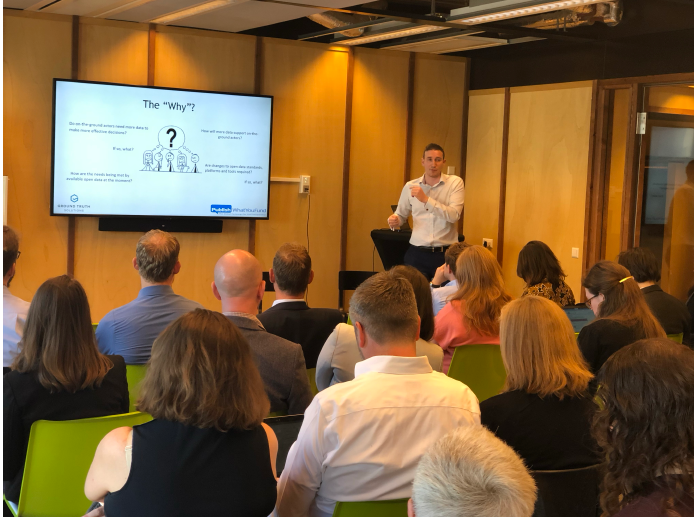
for decision-making
Key takeaways of the second Grand Bargain transparency workshop are now available. Organized by the World Bank Group and the Netherlands as the Co-convenors of the workstream 1 on Greater Transparency, the workshop on 14 May 2019 in the Hague brought together over 50 participants, representing government donors, multi-lateral agencies, aid organisations and academic institutes. >> Click here to read key takeaways, outcomes and next steps.
Cash programming: New Cost-Efficiency Analysis Guide
Following inputs from a wide ranging body of technical experts, the workstream on cash published new guidance on best practices for Cost-Efficiency Analysis of Basic Needs Programs. The cash workstream is also moving forward with efforts to tackle political blockages to expanding the use of humanitarian cash, and together with the workstream on localisation, with enhancing local partnerships. >> Click here to read the resources and other updates.
Advancing needs assessments and analysis through the Grand Bargain
Workstream on needs assessments has moved forward with the development of a Joint Intersectoral Analysis Framework (JIAF), which aims at contributing particularly on the commitment to conduct a holistic and intersectoral analysis of people’s needs, the causes of these needs and their severity, vulnerability, capacities and risks. The JIAF methodology is currently being developed, and a Concept Note for the JIAF covering the period 2020-2022 was also drafted to agree on the next steps and mobilize the necessary resources.
As a follow up to an action point from the Annual Meeting 2019, Save the Children, InterAction and OCHA conducted a workshop in early October aimed at enabling senior technical and humanitarian experts from NGOs to review the work of the workstream on needs assessments to date, and its application through the enhanced Humanitarian Programme Cycle (HPC). The workshop engaged NGO experts in identifying barriers and opportunities to directly share the rollout of these new tools and approaches in field-level operations. Emphasis was also placed on community engagement and gender mainstreaming within the needs assessments workstream and HPC. >> Click here to read the full update.
Annual Meeting 2019 - Roadmap
We drafted a roadmap to visualize the identified collective and individual action points from the Annual Meeting in June 2019 in Geneva, together with the Grand Bargain commitments, and the indicators agreed in 2018. The actions in this visualization are not a comprehensive reflection of all ongoing Grand Bargain activities, but rather only reflect those put forward at the Annual Meeting 2019. >> See the roadmap here.
Update from the Eminent Person's office
The Eminent Person also engaged in a high-level dialogue with senior representatives of NRC, CRS, IRC, World Vision, Mercy Corps, CARE, Oxfam, Save the Children on 18 October 2019 in Washington DC to discuss the Grand Bargain implementation. The conversation included a discussion of localization, transparency and management costs. The NGO-led initiative ‘Money where it counts’ as well as adopting a stronger ‘localisation lens’ across the Grand Bargain were also discussed. During these meetings, the Eminent Person encouraged donors and NGOs to continue focus on the implementation of the Grand Bargain commitments. This includes joining ongoing initiatives to take those to scale and more clearly identifying and addressing challenges for implementation. |
Latest from the Facilitation Group
|
Latest from the Signatories
Dan Church Aid: The Triple Nexus and Local Faith Actors in South Sudan
Christian Aid, CARE, Action Aid, CAFOD and Oxfam: Pathways to Localisation: for partnership-based humanitarian action
International Rescue Committee: Assessment of multi-year humanitarian financing
ZOA: Article "Five Questions about the Grand Bargain"
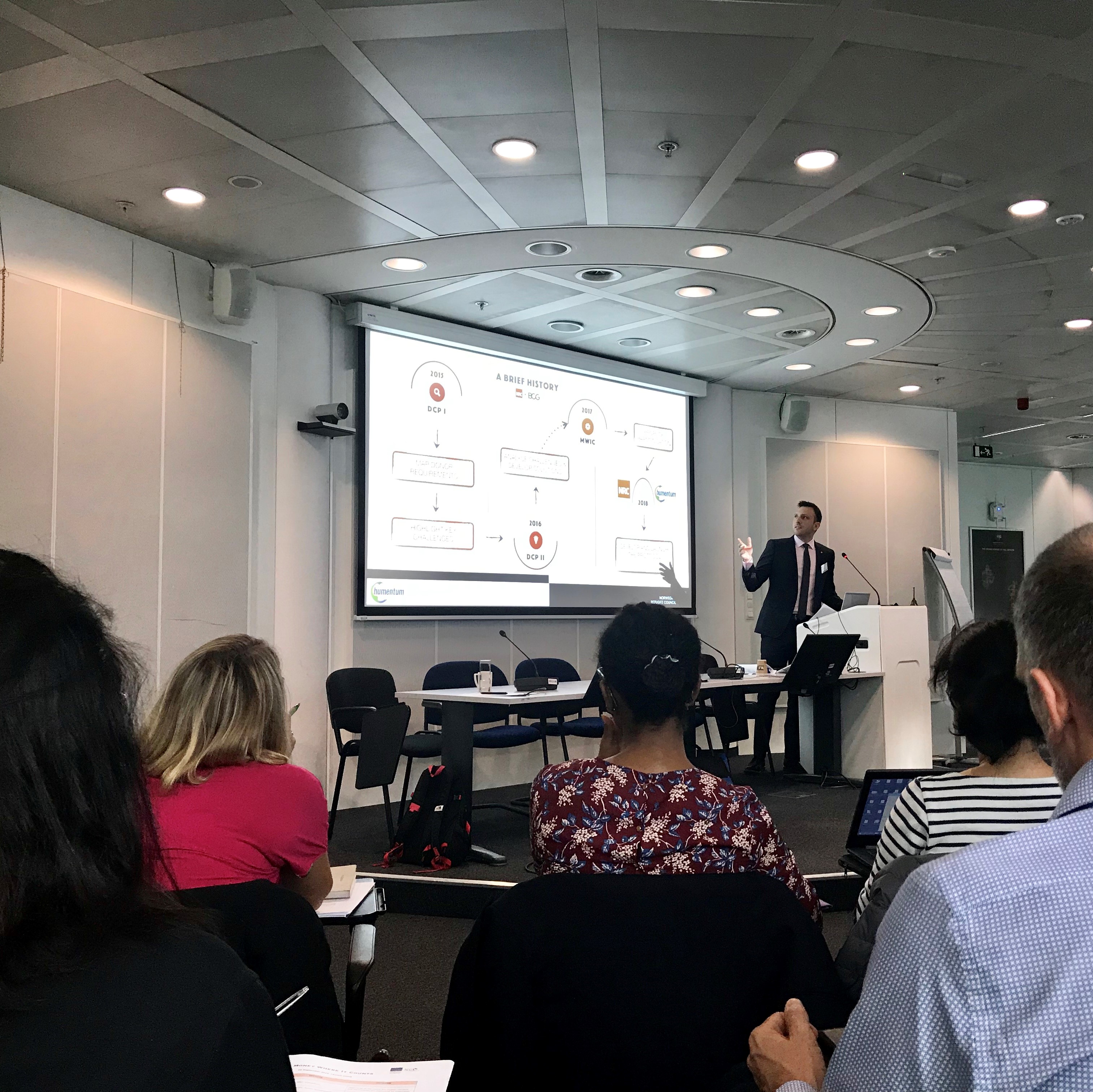 New protocol suggested for harmonizing cost classification and financial budgeting and reporting
New protocol suggested for harmonizing cost classification and financial budgeting and reporting
The Money Where it Counts protocol was presented at an event in Brussels on 25 September 2019 by the Norwegian Refugee Council (NRC) and Humentum, with the support of the European Union Civil Protection and Humanitarian Aid (ECHO) and the Voluntary Organisations in Cooperation in Emergencies (VOICE) Network. Based on the outcomes of a collaboration with the Boston Consulting Group, NRC and Humentum consulted with 9 NGOs for several months to develop the protocol.
It sets out a new, harmonised and simplified approach to cost classification, cost charging and financial reporting for international funding of not-for-profit agencies. The complexity and cost of the current approach to cost classification, cost charging and financial reporting is unsustainable given the growing humanitarian financing gap. By signing up to this Protocol donors and not-for-profit agencies will make the delivery of humanitarian aid and development more efficient and fit for purpose. In line with the next steps outlined during the presentation, NRC and Humentum will focus on mobilizing resources through bilateral advocacy efforts to initiate a pilot project. >> Click here to read more.
|

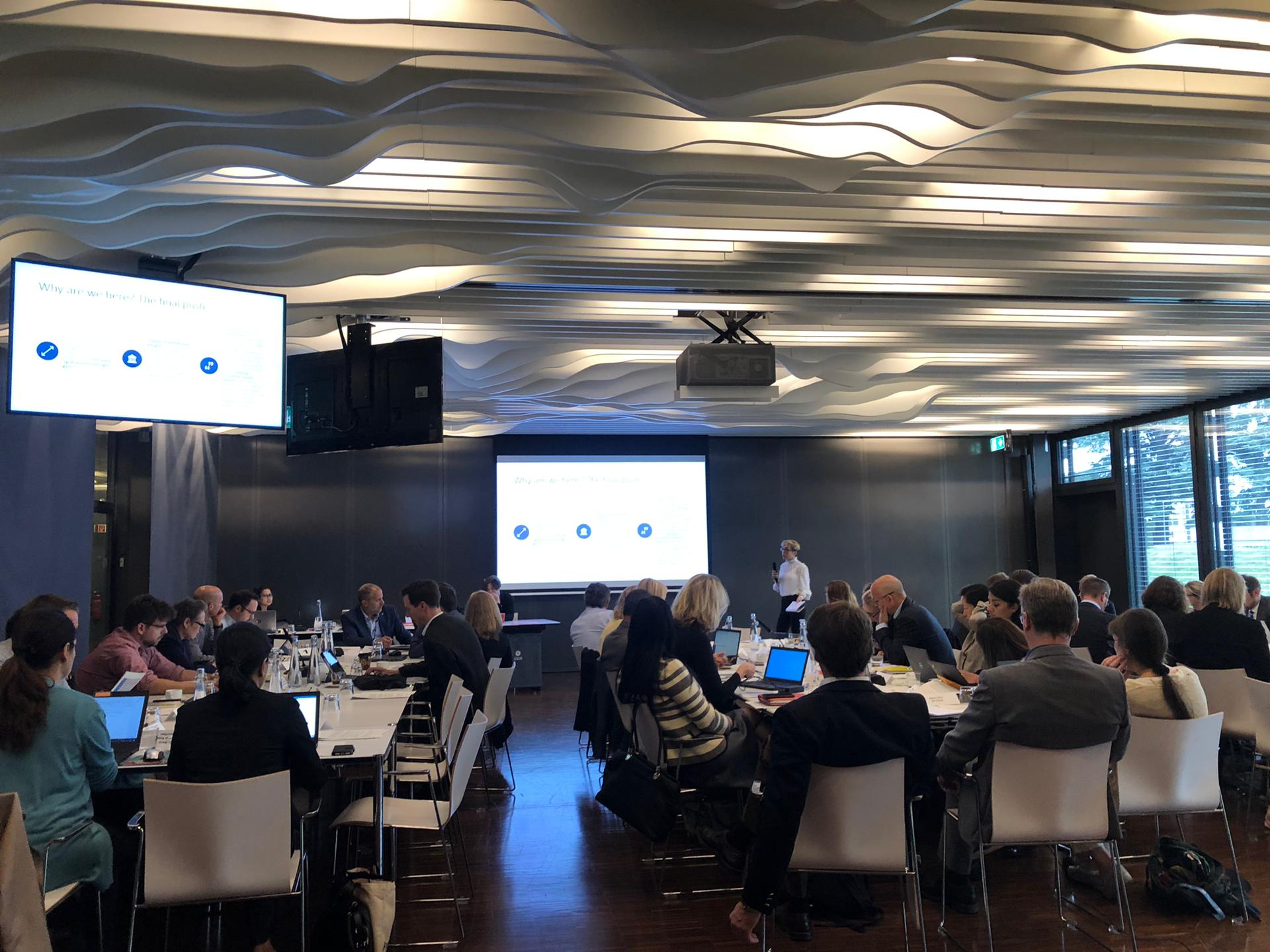 19 September 2019, Geneva:
19 September 2019, Geneva: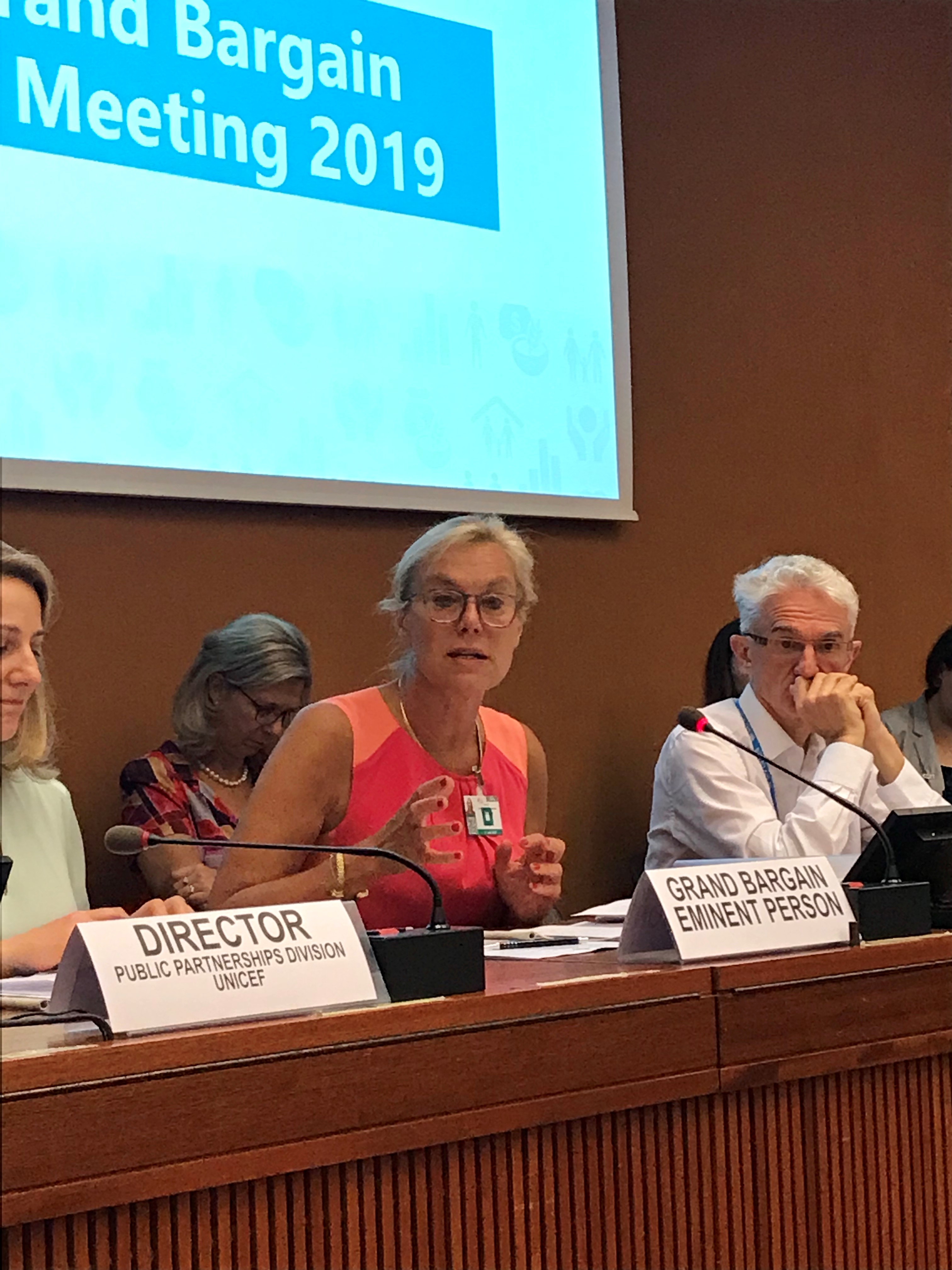 On 25 September 2019, the Eminent Person Ms Sigrid Kaag met with senior representatives of the US, UK, ECHO, Germany, Sweden and Canada in New York to discuss continued implementation of the Grand Bargain commitments, especially around
On 25 September 2019, the Eminent Person Ms Sigrid Kaag met with senior representatives of the US, UK, ECHO, Germany, Sweden and Canada in New York to discuss continued implementation of the Grand Bargain commitments, especially around 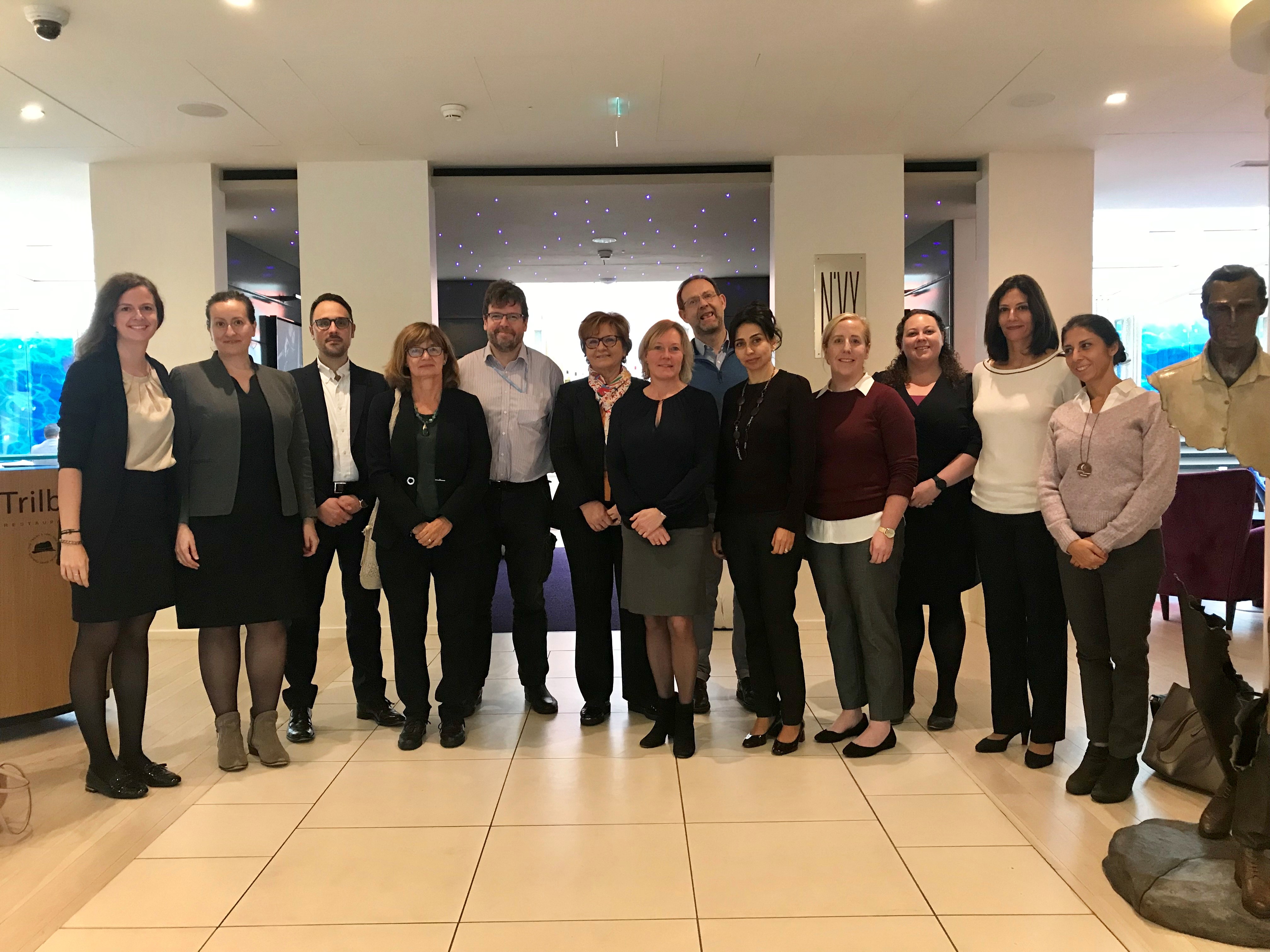 Facilitation Groups 2018-2019 and 2019-2020 handover and new workplan
Facilitation Groups 2018-2019 and 2019-2020 handover and new workplan